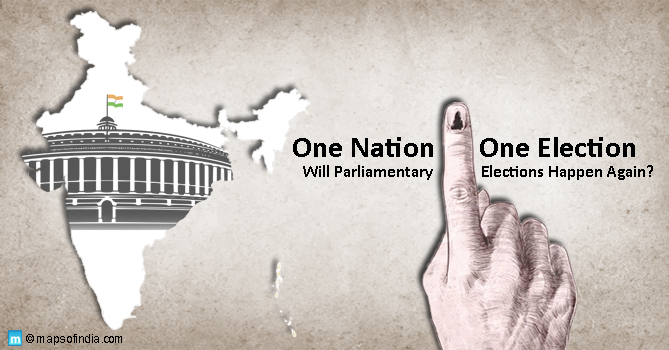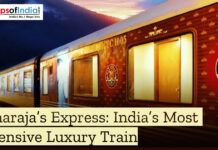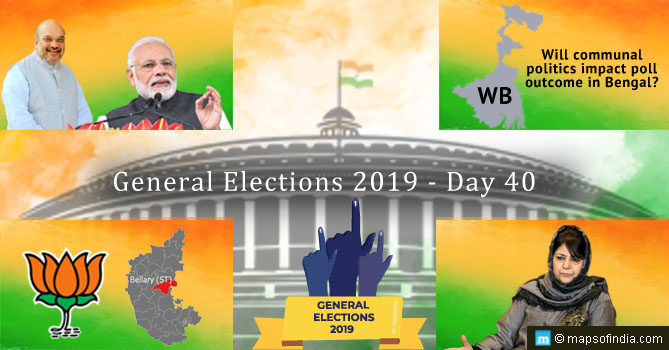
One of the early initiatives undertaken by the Narendra Modi-led government, within thirty days of taking office in its second term, is the proposal to introduce “One Nation, One Election” in the future. It has generated a lot of discussion and debate within all political parties, some of which support it while others oppose it.
What is the debate surrounding the one nation, one election proposal, and how will it benefit the country?
In a bold move, the Modi 2.0 government surprised the opposition by announcing an all-party meet on June 19, 2019 to discuss the feasibility of conducting a single simultaneous poll across the country. A single poll will enable people to vote leaders of their choice to the Parliament, state legislature, district bodies, etc., all on the same day, same time, and same venue.
The government claims this will save the country large sums of taxpayer’s money spent every year on holding various elections at the state and district level, in addition to the general elections held across the country every five years.
Moreover, every time there is an election, the Model Code of Conduct comes into force and hampers regular work of the government, or introduction of genuinely beneficial schemes.
What are the main issues of concern in conducting a single poll?
Excessive Spending
PM Modi has been raising the issue of excessive spending on account of holding polls in various states throughout the year and its political and economic impact on people.
According to the PM, the country remains on election mode almost through the year as there are five to seven elections organized by the Election Commission every year.
The country faces enormous economic and political costs.
Take the economic impact. The average cost of holding state assembly elections is around Rs 250-300 crores. The cost of organizing elections in all 29 states and 7 UTs is around Rs 11,000-12,000 crores. According to some estimates, the cost of the recently held 2019 Lok Sabha polls was around Rs 54,000 crores.
PM Modi-led government is asking whether the country can afford this cost.
As per a study conducted by NITI Aayog, the cost of holding simultaneous elections across the country will be only Rs 4,500 crores, saving the exchequer Rs 6,000 to 7,500 crores. This money will then be available for spending on other priority areas.
There are other advantages too. Political parties spend excessive amounts of money in conducting polls in various states. Simultaneous elections will significantly curtail these expenses.
However, as per EC estimates, there is a need for two sets of EVM and VVPAT machines at every polling booth. One for electing leaders to the Lok Sabha and the other, to the state assembly. It entails a one-time investment of Rs 4,500 crores.
Time Wasted
According to PM Modi, politicians remain on permanent election mode through the year on account of polls taking place in one state or another. It leaves little time for non-electoral politics, which could be utilized better in building political consensus on priority issues concerning the country.
Logistical Challenges
Currently, the central government incurs a massive cost in mobilizing and deploying central forces to manage security at different polling stations in different states. They are permanently moved from state to state presenting a major logistical challenge through the year. Holding a single poll frees the forces for deployment in those areas where security concerns are higher.
Lack of Political Consensus
Several political parties including the Congress, All India Trinamool Congress (TMC), and Telugu Desam Party (TDP) have boycotted the June 19 all-party meeting, claiming a single poll is a threat to the present federal structure. Parties like BSP and AAP continue to raise concerns over the use of EVMs in polls.
Also, regional parties fear losing influence to national parties under a single poll format and so, remain opposed to it. The government faces a major challenge in overcoming these concerns.
Constitutional Challenges
The Constitution needs to be changed, which is the biggest hurdle before the government. It will entail introducing a new Bill in Parliament and will require a two-thirds majority in Lok Sabha and Rajya Sabha, which is something the ruling party will have to address.
Introducing a single poll has other challenges as well. State governments are elected for five years, and since election dates vary from state to state, they have different tenure dates. To synchronize them to a single polling date will require some states to reduce or extend the tenure period by around two years. It is bound to be opposed by state governments.
If implemented immediately, it could take up to December 2021 before the country will be able to hold its first simultaneous polls. As of now, that is very unlikely.
Large countries like Brazil and Indonesia have successfully managed to conduct single polls, as have several other countries like Sweden, South Africa, Bolivia, and the Philippines.
Debate Remains Open
The government has announced a working committee to look into it and make recommendations on how to move forward on this. As of now, “One nation, one election” remains a work in progress.
Related Link:





